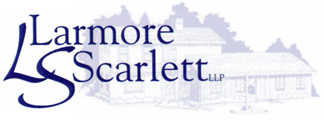A power of attorney is a document that’s designed to give someone else the authority to act on your behalf when you aren’t able to do so for some reason. It isn’t uncommon for an older person to give a power of attorney to a son, daughter, niece or nephew. The POA gives the younger person the authority to conduct business, including banking and bill paying, for their elderly relative.
But what if you suspect that the POA is abusing his or her discretion and using their position to take advantage of the older person? While most people who take on a POA are motivated by a genuine desire to help their elderly relative, some people can’t resist the temptation to siphon away money that they see just sitting around in a bank account or use the elder’s monthly Social Security checks partially for themselves.
You may have to go to court in order to resolve the issue.
It’s important to understand that, unlike a durable power of attorney, a regular power of attorney is meant to be used while the grantor is still competent and able to direct his or her own affairs. If the grantor become incompetent, the POA is supposed to end. Of course, if the person holding the POA is financially abusing the grantor, having the POA continue is to his or her advantage, so he or she isn’t likely to let anyone know that the grantor has developed dementia or is otherwise incapable of making sound decisions.
That’s actually one avenue through which you can challenge the POA, if the person holding it isn’t willing to step down once confronted. Unfortunately, you may have to take your challenge in front of a judge and you may need to step in and request legal guardianship of your elderly relative in order to prevent the same thing from happening all over again.
Legal guardianship puts you in charge of someone who isn’t able to make sound decisions. In the case of elderly relatives, it’s usually due to a condition like dementia. While it’s a lot of responsibility, it’s also puts you in control of the elder’s entire estate, income, health care and living situation—which may be the only way to stop another abusive relative or “friend” from coming along and getting your relative to sign another POA document in order to get “help.”
Source: FindLaw For Legal Professionals, “Guardians & Powers of Attorney,” accessed Dec. 16, 2016

